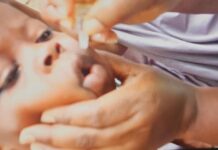Hope for Future Generations (HFFG), a leading public health advocacy organisation, is urgently calling on the government to immediately release funds for the 2025 vaccine co-financing obligations, warning that any further delays could trigger another vaccine crisis with devastating consequences for millions of children.
According to HFFG, Ghana is yet to commit funds for its share of the vaccine financing arrangement with Gavi, the Vaccine Alliance, putting the nation’s immunization programme at serious risk.
Failure to meet this commitment could lead to critical vaccine shortages, undermine public health gains, and reverse years of progress in child survival.
“Delays in co-financing payments threaten not only our immunization gains but also the health security and economic productivity of the nation,” said Nancy Ansah, Director of Programs at HFFG. “The government must act with urgency and fulfill its responsibility to protect Ghana’s children.”
Ghana has a checkered history of missing vaccine payments, with lapses in 2014, 2016, and 2018 resulting in vaccine stockouts and outbreaks of preventable diseases. In 2019, Ghana recorded its first polio outbreak in a decade due to funding shortfalls.
Similarly, in 2022, over 120 measles cases were reported in the Northern Region as a result of vaccine shortages.
The consequences of inaction could be catastrophic. With Gavi set to end its financial support by 2030, HFFG warns that sustainable vaccine financing must become a national priority.
The group recommends the implementation of vaccine-specific funding warrants, advanced procurement models, and the establishment of a dedicated emergency health fund.
“Ghana should lead by example on the continent,” Ansah said. “We must advocate for African governments to invest in our own vaccine systems. If we have the capability to produce vaccines locally, why wait for others? This is about building and strengthening Africa’s health sovereignty.”
HFFG highlighted that global partners, including Gavi and the Global Fund, are already pouring resources into health systems strengthening, but warned that without proactive domestic investment, such efforts risk falling short.
As the country’s healthcare system grapples with increasing demands and limited resources, civil society is ramping up pressure on the government to prevent another avoidable crisis. The message from health advocates is clear: Ghana cannot afford to delay. The time to act is now.
GAVI approves Ghana’s application for Hepatitis B birth dose vaccines
By: Elsie Nana Adjoa Aidoo









